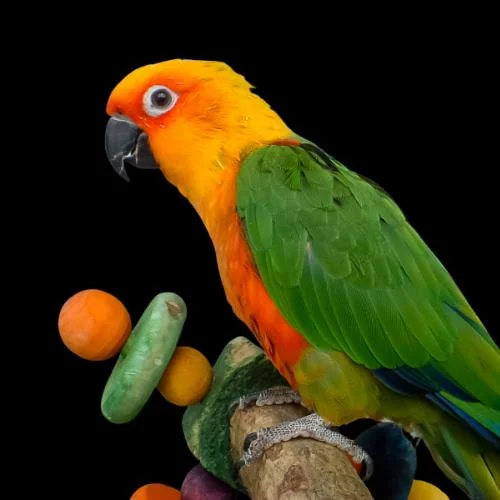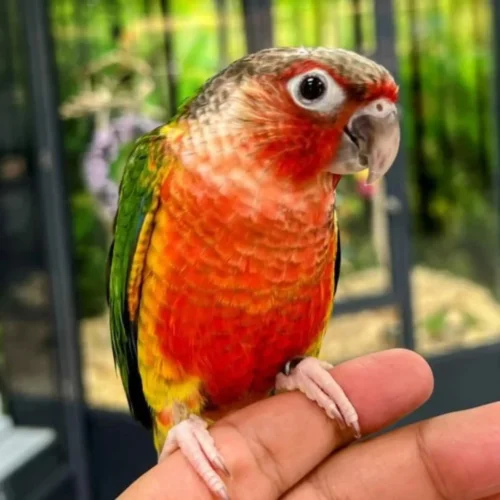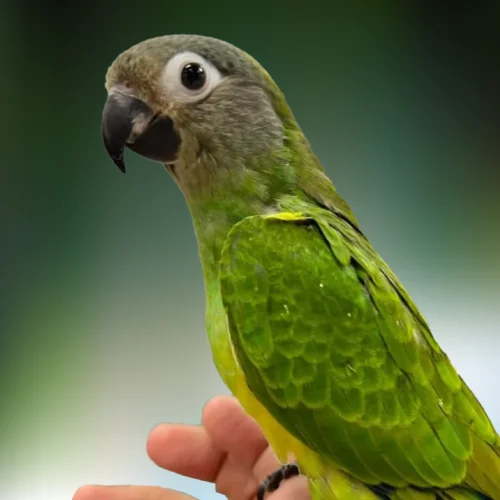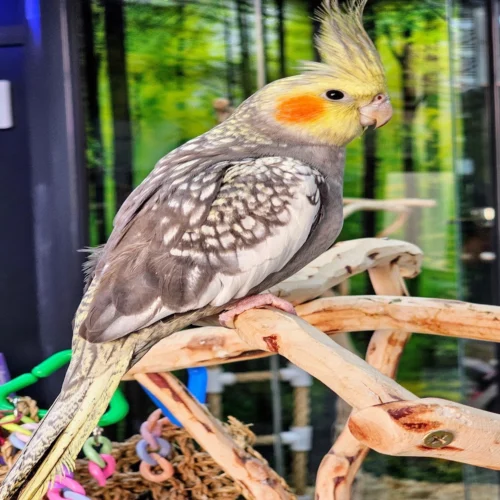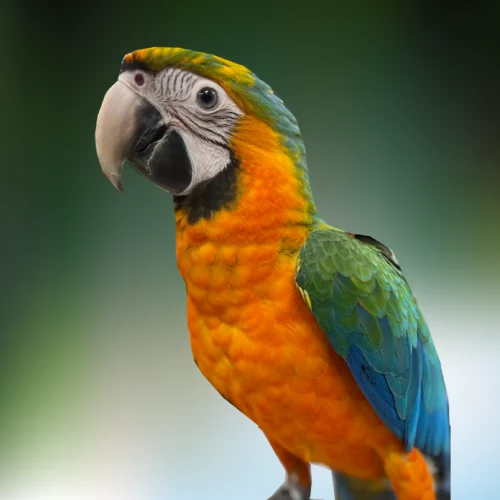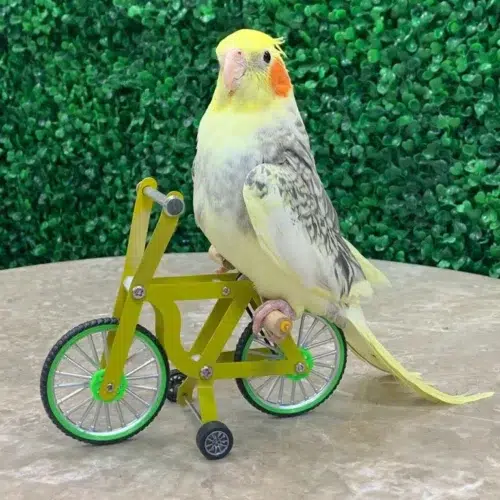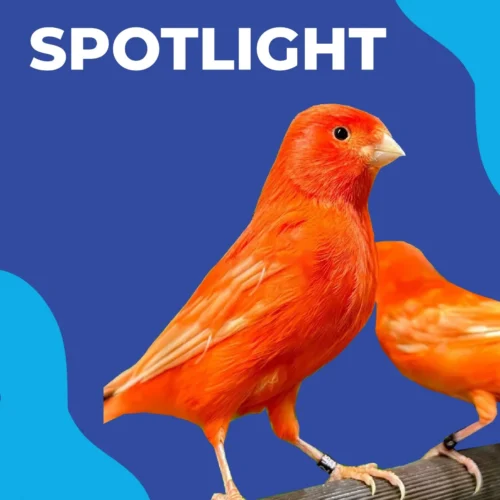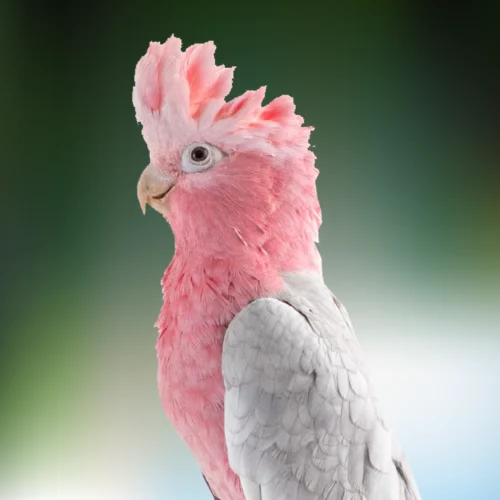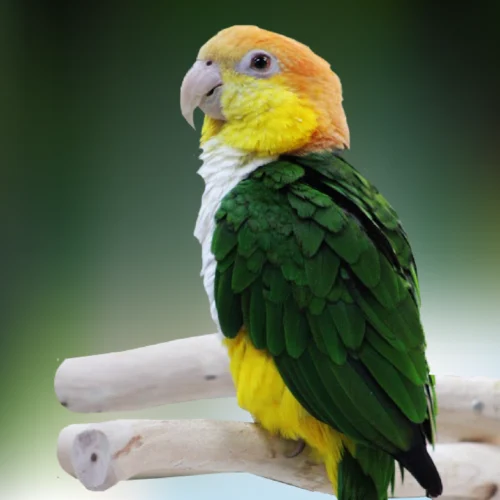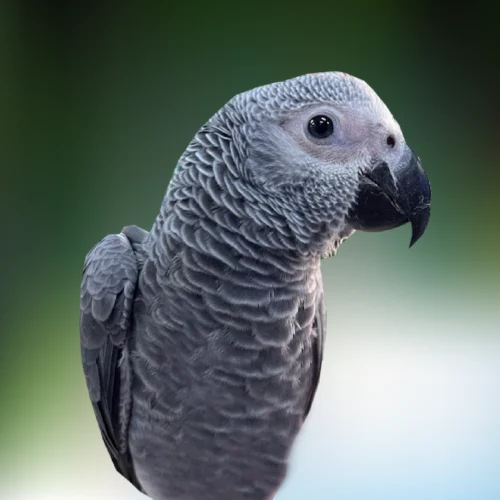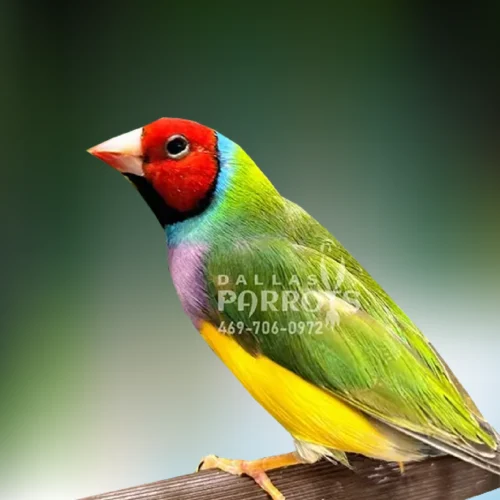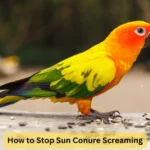
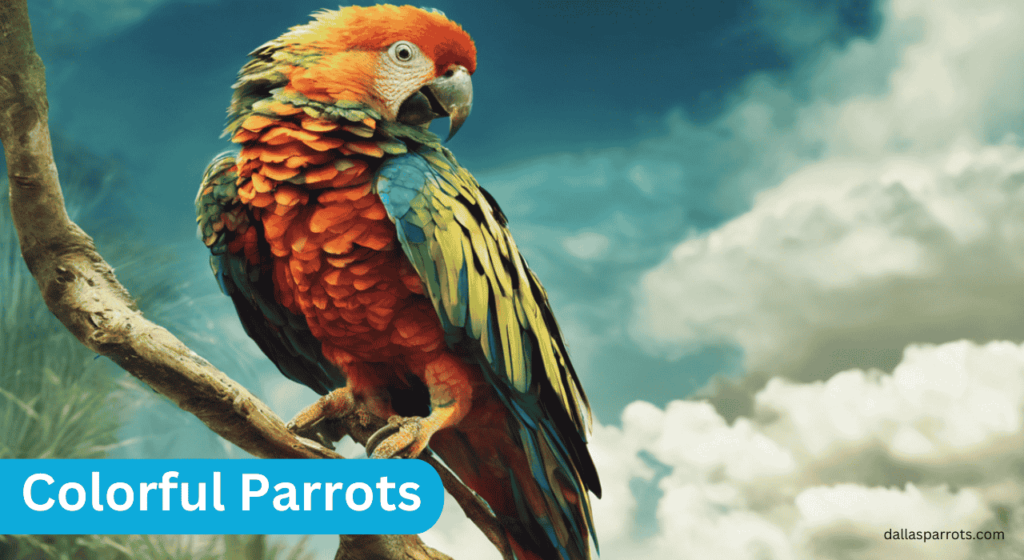
Top 11 Colorful Parrots That Will Amaze Every Bird Lover
Colorful parrots are not only known for their bright feathers but also for their engaging personalities. These fascinating birds come in different sizes, colors, and species, each with unique traits. Whether you’re an experienced bird lover or considering adopting a parrot for the first time, understanding these parrots’ needs and behaviors is crucial. Let’s take a look at 11 of the most colorful parrots that will captivate every bird enthusiast.
Key Points
- Parrots come in a wide range of colors and sizes, from small conures to large macaws.
- Each species has unique feather patterns and personalities, from playful to calm.
- Owning a parrot requires attention to care, space, and time to meet their needs.
The Colorful World of Parrots
Parrots are not just stunning in their appearance, but their colors also serve several important roles. From attracting mates to protecting them from predators, vibrant feathers are vital for survival and communication. Their colorful plumage varies from species to species, providing unique characteristics that make parrots stand out in the bird kingdom.
- Attraction: Bright colors help parrots attract mates during breeding seasons.
- Communication: Colorful feathers can communicate social status or territory.
- Camouflage: Some parrot species’ colors help them blend into their natural environments.
- Species Diversity: Each parrot species has evolved distinct color patterns based on its habitat and behavior.
- Survival Advantage: Colorful feathers play a role in avoiding predators by acting as a warning or blending with the environment.
Jenday Conure – A Rainbow on Wings
The Jenday Conure is one of the most colorful parrots. With its blend of bright orange, yellow, and green feathers, this small parrot will certainly draw attention. Known for its playful and social nature, Jenday Conures are friendly, energetic, and love human companionship.
| Feature | Details |
| Colors | Bright orange, yellow, green |
| Size | Small |
| Personality | Social, playful, affectionate |
Green Cheek Conure Yellowsided – A Subtle Beauty
This parrot may be smaller, but it is just as stunning. The Green Cheek Conure Yellowsided has vibrant green feathers with a hint of yellow on its sides. These parrots are known for their sweet, playful personality, and they are a great choice for people who want a smaller, more interactive pet.
|
Feature |
Details |
|
Colors |
Green with yellow sides |
|
Size |
Small |
|
Personality |
Sweet, playful, affectionate |
-
Available Birds
Green Cheek Conure Yellowsided
$850.00Original price was: $850.00.$795.00Current price is: $795.00. Add to cart
Dusky Conure – A Bold and Elegant Choice
With dark plumage and hints of yellow and red, the Dusky Conure is an elegant and bold parrot. Its calm and affectionate nature makes it a perfect companion for those who enjoy a quieter, yet loving pet.
|
Feature |
Details |
|
Colors |
Dark plumage, yellow and red accents |
|
Size |
Small |
|
Personality |
Calm, affectionate |
Cockatiel Bird Normal – A Charming Companion
Cockatiels are another popular parrot species, with their soft grey feathers and a splash of yellow on their crests. Their charming and gentle nature makes them ideal pets for families, as they are friendly, easy to care for, and love social interaction.
|
Feature |
Details |
|
Colors |
Grey with yellow crest |
|
Size |
Small |
|
Personality |
Friendly, social, easygoing |
Macaw Catalina Hybrid – A Majestic Beauty
Macaws are large, colorful parrots, and the Catalina Hybrid stands out with its brilliant red, blue, and yellow feathers. Although they require more space and care, they are extremely affectionate and love interacting with their owners.
|
Feature |
Details |
|
Colors |
Red, blue, yellow |
|
Size |
Large |
|
Personality |
Affectionate, loyal |
Cockatiel Bird Fancy – A Variation on the Classic
The Fancy Cockatiel stands out from the normal grey variety with its unique and varied color patterns. These birds are cheerful, easy to care for, and love interacting with their families.
|
Feature |
Details |
|
Colors |
Various color patterns |
|
Size |
Small |
|
Personality |
Cheerful, interactive |
Singing Canary Bird – Red Factor
The Singing Canary Red Factor is a small bird with brilliant red feathers. Besides being visually stunning, it is known for its beautiful singing voice, making it a perfect pet for those who enjoy melodic birds.
|
Feature |
Details |
|
Colors |
Bright red |
|
Size |
Small |
|
Personality |
Vocal, energetic |
Beautiful Rose-Breasted Cockatoo – A Showstopper
The Rose-Breasted Cockatoo is easily recognized by its soft pink crest and white body. It is a highly affectionate bird that craves attention, making it a great companion for people willing to spend quality time with it.
|
Feature |
Details |
|
Colors |
Pink crest, white body |
|
Size |
Medium |
|
Personality |
Affectionate, social |
Caique White Bellied – Playful and Colorful
Caiques are small, energetic parrots with green and yellow plumage. Known for their mischievous personality, they love playing and need plenty of stimulation to keep them happy.
|
Feature |
Details |
|
Colors |
Green, yellow, white belly |
|
Size |
Small |
|
Personality |
Playful, energetic |
African Grey Congo – More Than Just Color
Though not as colorful as other parrots, the African Grey Congo is known for its intelligence. These parrots have grey feathers with a bright red tail, and they are one of the smartest parrot species, capable of mimicking human speech and solving problems.
|
Feature |
Details |
|
Colors |
Grey with red tail |
|
Size |
Medium |
|
Personality |
Intelligent, calm |
Finch Lady Gouldian – Small but Stunning
The Gouldian Finch, although small, is strikingly beautiful with its bright green, yellow, and purple feathers. These birds are social, but they require a specific environment to thrive and maintain their bright colors.
|
Feature |
Details |
|
Colors |
Green, yellow, purple |
|
Size |
Small |
|
Personality |
Social, delicate |
Why Are Parrots So Colorful?
Parrots are known for their stunning, vibrant colors, and there are several reasons behind their eye-catching plumage. Here’s why parrots are so colorful:
- Protection from UV Rays: Parrots’ colorful feathers can also protect them from the sun’s harmful ultraviolet (UV) rays. These feathers might reflect UV light, which helps protect their sensitive skin underneath.
- Attraction and Mating: Bright colors help parrots attract mates. In the wild, a parrot’s vivid feathers signal health, strength, and genetic fitness, which makes them more appealing to potential mates. This colorful display is a form of communication to indicate the parrot’s readiness to reproduce.
- Camouflage: While bright colors might seem to make parrots more noticeable, some species use these colors to blend in with their natural environments. For instance, green parrots can blend into the lush foliage, making them harder to spot by predators. The specific patterns and colors of parrots can provide camouflage in their particular habitat.
- Social Interaction: Parrots are social creatures, and their colorful feathers help them communicate within their flocks. Different colors and markings can indicate a parrot’s age, health, or position in the social hierarchy, helping other parrots identify each other more easily.
- Evolutionary Advantage: Some studies suggest that the evolution of bright colors in parrots is related to their diet. For example, parrots eat colorful fruits, and their feathers may have evolved to mirror the colors they encounter in nature.
Why Buy Your Parrot from DallasParrots.com?
At DallasParrots.com, we offer a variety of healthy, colorful parrots perfect for bird lovers. Here’s why you should choose us for your next parrot:
- Wide Variety of Parrots: We have many types of parrots, from playful Jenday Conures to the large, beautiful Hyacinth Macaws.
- Healthy and Hand-Picked Birds: All our parrots are chosen carefully for their health, colorful feathers, and friendly personalities.
- Expert Advice: Whether you’re new to birds or an experienced owner, we offer helpful tips on parrot care and training.
- Trusted Reputation: We are known for selling healthy parrots and offering great customer service, so you can trust us for your new companion.
- Affordable Prices: Our parrots are reasonably priced, so you get a great bird without spending too much.
Choose DallasParrots.com for a vibrant, healthy, and friendly parrot that will brighten your home!
Conclusion
We’ve highlighted 11 of the most colorful parrots that are sure to captivate any bird lover. Each species has its own unique appearance and personality, so it’s important to understand their needs before adopting one as a pet. Parrot care is a significant commitment, but the bond you form with your colorful companion will be well worth the effort.
For more Detail VISIT Instagram
FAQ’s
What are the colorful parrots called?
Colorful parrots are often referred to by their species names, like Macaws, Conures, and Cockatoos. Some popular colorful parrots include the Scarlet Macaw, Blue-and-Gold Macaw, and the Sun Conure.
What is the name of the rainbow color parrot?
The Rainbow Lorikeet is a beautiful parrot known for its vibrant, rainbow-like plumage. It’s a small, colorful bird with a mix of red, blue, green, and yellow feathers.
What is the prettiest parrot in the world?
Many people consider the Hyacinth Macaw to be the prettiest parrot. With its stunning blue feathers and yellow eye rings, it’s definitely a showstopper.
What is the name of the African colored parrot?
The African Grey Parrot is a famous parrot known for its intelligence and grey feathers. It’s not as colorful as some other species, but it’s still a highly admired parrot.
What is the name of the Disney parrot?
The parrot from Disney’s Aladdin is named Iago. Iago is a red and yellow parrot with a witty and mischievous personality.
What is the name of the rainbow colored bird?
The Rainbow Lorikeet is often referred to as a “rainbow bird” due to its vibrant mix of red, blue, green, and yellow feathers.
How much is a rainbow parrot?
The price of a rainbow parrot, like a Rainbow Lorikeet, can range from $500 to $1,500 depending on its age, health, and where you buy it from.
What are pink parrots called?
Pink parrots are typically called Rose-Breasted Cockatoos. They have a soft pink crest and are known for their affectionate nature.
What bird looks like a Rainbow Lorikeet?
The Rainbow Lorikeet is often compared to the Eclectus Parrot, as they both have colorful plumage, but the Eclectus is larger and has a different range of colors, including bright red and green.
What is the rarest color of a parrot?
The rarest color of parrot is often considered to be a combination of bright blue and purple. Some rare mutations of parrots, like the “blue mutation” of the Rose-Breasted Cockatoo, display a unique, stunning color pattern.

